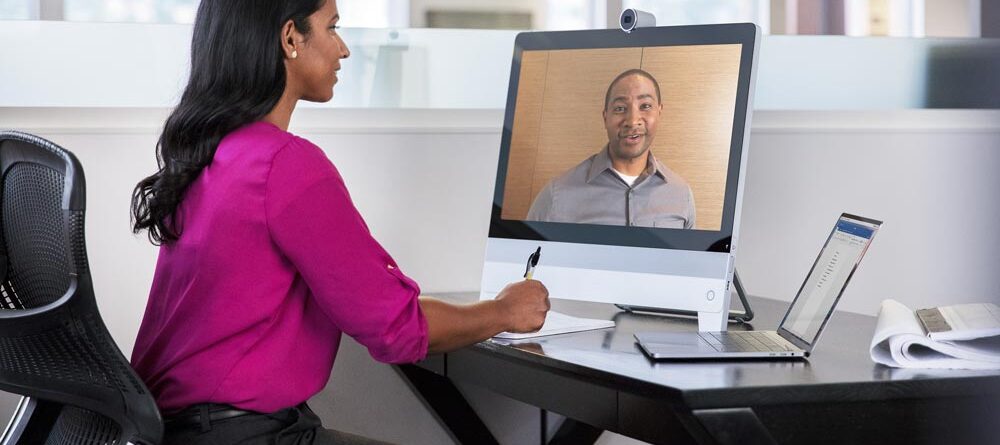Affiliation Need and Promoting a Sense of Connection in a Virtual Environment
*Originally published for Accounting & Finance Women’s Alliance, Grand Rapids Chapter with permission.
I conducted a Google search today: “How to retain employees in a virtual environment.” Google ignored the virtual environment part and gave me a whole list of articles on employee retention. Ironically, one of the first results was a Top 9 list, where number one was “adopt a remote work culture” (the article was a few years old). While for some this may still hold true, for many, this remote environment is much more than what we wished for.
In the past, some of my most productive days were the ones I worked from home, but they were few and far between, and never what kept me engaged and excited about my career. When asked about what it is that I do and why I love it, I have generally come up with a response similar to this: There are very few sexy stories to share with non-accountants, but the parts that I have loved are the people that I have met and the experiences we have shared, such as a particularly challenging client, or a late night trying to hit a deadline, or a cheesy networking event. So, if shared experiences with my team are what keep me engaged in my career, what do I do now that work has gone entirely virtual?
In my search, I found an article in Forbes written by Dr. Brad Cousins that discusses the concept of “Affiliation Need,” developed by psychologist Henry Murray, described as “a need for harmonious relationships and a sense of communion.” It gives title to what I have long felt throughout my career – that I can get through anything so long as I’m not doing it alone. Tough client? This will be a war story for us once we get through it. Long nights in the office? That’s ok, because my friend and are I gutting it out together. But what happens when that affiliation need is not being satisfied in a remote environment? Highlighting the importance of this question, Cousins states that organizations are witnessing a variety of fight, flight or freeze behaviors, lack of ability to focus, and a lack of engagement.
Organizations around the world are struggling to retain and cultivate the culture of their organization in a remote environment. We know that it is a problem. While many are thriving in the flexibility and freedoms of working from home, others are feeling disconnected and losing a sense of what it is that brought them to the organization in the first place. What are some practical ways we can keep each other engaged in a virtual world?
While we’re all Zoomed out, creating quality personal connections one-on-one or in a smaller group is especially important in not only keeping employees engaged, but retaining employees in the organization.
Dr. Cousins provides some answers in one of his earlier pieces: Uncertainty and Team Engagement: What Great Leaders Do. Here are a few of my favorites of his suggestions:
1.) Practice Awareness
We must be intentional. When in person, it is easy to see what kind of day someone is having. When we are remote, it can be easy to forget to even say hi to someone.
2.) Motivate People, Not Teams
We need to learn about what motivates people individually. This often reminds me of the book, “The 5 Languages of Appreciation in the Workplace: Empowering Organizations by Encouraging People.” You are not going to be successful motivating someone with gifts by mail, if what they really want is someone to call them up to check in. Understand the needs of each person and motivate them with what they need.
While it may be awkward to call someone up out of the blue to check in, or even more awkward to have to schedule said check-ins, it remains an ever-important aspect of our role as colleagues and leaders in our organizations. You do not even have to have the title to be leader in this area!
A member of my team recognized that she was lacking in some human contact and took it upon herself to create a weekly time for anyone who wants a chat to come and talk to her. That is leadership and taking ownership over her own affiliation needs.
So, I encourage you, while we may be tired of the virtual meetings, to make an effort to create those one-on-one connections that remain so important. Even if you reach out with the idea that you are doing so for someone else, you may find that your day has been made that much better because you took the time to connect.
About the Author: Emily has been a part of the West Michigan accounting community for 12 years — with both industry and public accounting experience. Throughout her career, she has discovered how much she enjoys business development, networking, and board participation. Emily actively participates in organizations including ACG and GVSU Accounting Alumni. Her interest in the AFWA Scholarship Chair position stems from her passion for bringing visibility to the financial opportunities available to women who are considering a career in accounting.
Contact our team at Hungerford Nichols CPAs + Advisors if you have questions.
Email: epaszkowski@hungerford.com
Phone: (616) 949-3200











